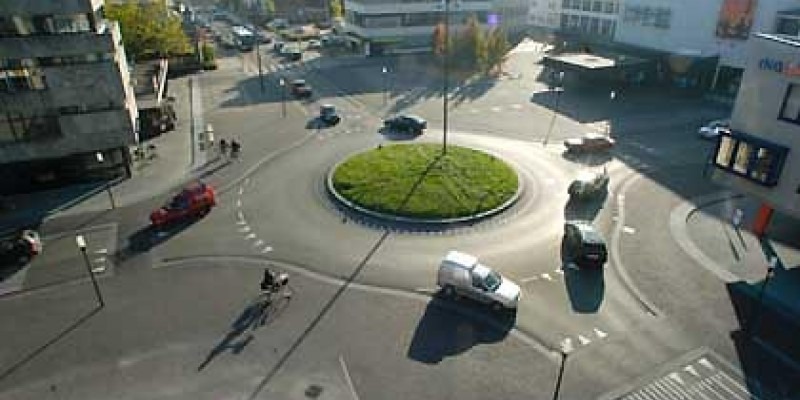
Chris Thomas, Head of Business Improvement and Innovation, Bristol Water W
hen people talk about innovation, they often talk of what’s new, what’s the new tech, the new gadget. When we shout about innovation we most definitely shout about the new and the whizzy. But when you look up what innovations means, not a great thing to be in your search history if you’re the ‘head of business improvement’, it says ‘a new method, idea, product’.
Several years ago, Hans Monderman was allowed to put into practise his ideas for traffic management in the small Dutch town of Drachten. After several fatal accidents and people sat for hours in traffic around the town’s main junction, Monderman took to the streets to remove all the traffic lights, road markings, and some pedestrian crossings. At the junction he introduced a traffic circle which stands out for what isn’t there. No signs or signals telling you how fast to go, no lane markings, no curbs, and no pavement to indicate where cars should be and where pedestrians should be.
In 2004 he told Wired Magazine “The trouble with traffic engineers is that when there’s a problem with a road, they always try to add something. To my mind, it’s much better to remove things”. The point? To make drivers, pedestrians and cyclist think for themselves, and to take notice of others. And it works, to know who has right of way you need to make eye contact, drivers need to understand the intentions of cyclists entering the road. There’s been a huge reduction is accidents and tailbacks at the traffic circle and almost non-existent.
Sometimes innovation isn’t about the new gadget, an app, a robot. Sometimes it is just about doing things differently, doing things better. Innovation can be a mind-set, a way of being or thinking about a problem.
I also love the story of Mary Barra, Chief Executive at GM Motors, who changed the dress code policy to just two words, ‘Dress appropriately’. Not because the dress code really bothered her but because she believed you need to empower staff to make decision and that starting on the small, seemingly inconsequential policies will start to tackle the company culture. It is that sort of creative thinking, thinking differently that we want at Bristol Water. We encourage all staff, at any level to submit ideas for change big and small through our brainwaves initiative. We also invite small, often start up businesses into the company as part of our business incubator, the Workshop, to test ideas and see where they lead too. Hans Monderman was interviewed by Tom McNichol back in 2004. You can read about here. You can also check out Leah Fessler’s article on Mary Barra by clicking here. If you want to find out a bit more about how we at Bristol Water try to harbour creative thinking then check out Ben Newby’s blog on the Gilbert and George approach.
- Log in to post comments
Join a winning Chamber
Connect, share & grow - raise your business profile locally & nationally through the largest membership organisation in the South West.